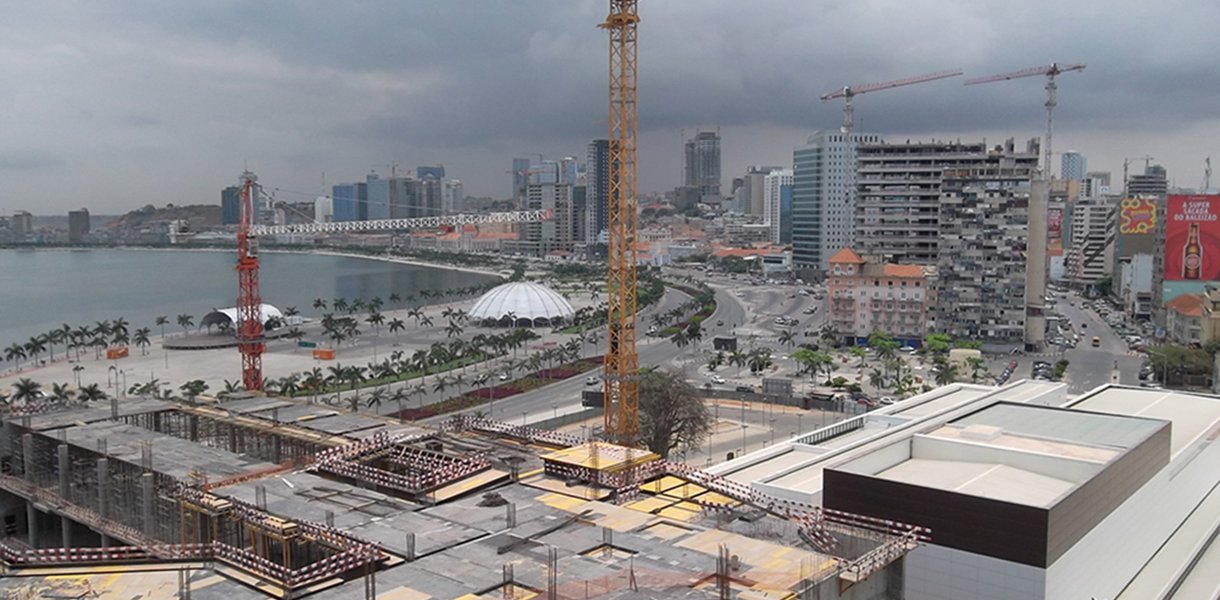40 Years of Independence: Growth or Development?
15:00 - 18:00
Initiative of the Gulbenkian Next Future Programme and the Gulbenkian Partnerships for Development Programme, under the scope of the “European Year for Development"
9 May 2015
Auditorium 3
Free admission
This lecture is intended to share and offer up for analysis the different paths that have been followed since independence by these three African States, reflecting upon the possible models for future development in such distinct economies as those of Angola and Mozambique, on the one hand, and Cape Verde, on the other hand. The aim is to encourage reflection on the importance in these different economies of such questions as employment, income distribution, access to basic services, education and training, and the impact of the new technologies in these rapidly changing societies.

Luanda, 2014 © PR
Programme
Saturday, 9 May
15:00 – 15:15 Welcome
15:15 – 16:15
Speakers:
- José Luís Livramento de Brito (Economist, Cape Verde) – Cape Verde, 40 Years of Independence: Growth or Development?
This talk will begin by outlining the characteristic features of Cape Verde at the time of its independence, in general terms, highlighting four main aspects: the country’s great isolation in relation to its geographical area, the absence of a dynamic regional economic area, the option that was taken for a centrally planned economy in the period after independence and the lack of a productive base prior to independence, as well as some of the more relevant socio-economic data from that time.
The dynamics of the country post-independence will also be examined, firstly by questioning the behaviour of its political heirs, and then by reflecting on its evolution in relation to six specific points: the Income Economy; Economic and Financial Anchorage; the Informal Economy and Productivity (Factors / Human Capital); Poverty Levels and Social Inequality; the country’s Ranking in International Indices; and the Economic and Political Conjunctures and their results. The talk will end with a summary of the major results achieved in the 40 years since Cape Verde gained independence, in response to the basic question: “Cape Verde, 40 years, growth or development?”
- Nelson Pestana, (CEIC-Centre for Scientific Studies and Research, Catholic University, Angola) – Angola in the 40 Years since Independence: breaks and continuities?
Forty years later, the path of Angola, as an independent country, is marked by the tensions between its earlier proactive model of development of the socialist type and its current model of authoritarian neomercantilism. This latter model, which is necessarily transitory in nature, has given birth to the industrialist State, the peak of this discussion about development models, based on the social and historical examination of the paradigms of the Angolan State, in its succession of continuities and breaks from the past.
16:15 – 16:30 Coffee/Tea Break
16:30 – 17:00
Speaker:
- João Mosca (Observatory of the Rural Environment, Mozambique) – Mozambique: growth and poverty.
The main thesis of this presentation will be that Mozambique has opted for growth policies that generate poverty and are based on a pattern of extraverted dominant accumulation that deepens economic and social dualisms and increases political and social instability.
What has been seen so far in Mozambique is a development based, on the one hand, on unsustainable expansive policies that create an inefficient and uncompetitive form of capitalism and, on the other hand, populist policies designed to guarantee stability (or instability at low levels of intensity), allowing for the reproduction of power and the consequent obtaining of economic benefits that have led to the emergence of a political and business elite subject to the dictates of international capital. In such a context, it is natural that there should be a growth in informal economies, which, in turn, in a feverish period of future wealth, has led to the formation of new informal sectors associated with the predatory extraction of natural resources (gold, precious stones, timber, ivory) and the trafficking of drugs and people. The author has expressed his solidarity with those calling for a growth that is based on the internal market, with priority being given to agriculture and food safety, brought about by small and medium-sized agricultural businesses working under the scope of an integrated rural development, absorbing the benefits of natural resources and operating in a competitive market that will lead to an increase in economic relations between sectors, creating local added value and generating employment. To this end, he suggests the need for profound reforms in the state apparatus with the modernisation, depoliticisation and decentralisation of the public administration and the democratisation of bureaucracies, the laying of the foundations for the rule of law and a democratic state, the strengthening of democratic structures and the emergence of an educated and informed civil society that has the capacity to influence and intervene.
17:00 – 18:00 Debate
Chair: Maria Hermínia Cabral (Director of the Gulbenkian Partnerships for Development Programme)
